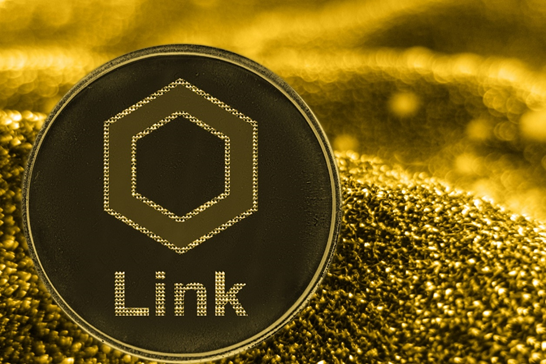What is Chainlink?
Chainlink is a cryptocurrency that aims at establishing a connection between the smart contract and the world. It incentivizes networks of computers to offer real-world and accurate data to smart contracts that are running on blockchains.
The decentralised oracle network delivers tamper-proof, reliable output and input for smart contracts across blockchains.
Smart contracts are contracts that are executed automatically when certain criteria are met by both the parties involved in the contract. Presently, smart contracts are employed for the development of crypto-related products and the creation of new crypto assets. The only issue with smart contracts is that they are dependent upon the external data source to execute the terms mentioned in the contract. For instance, if a banking institution wants to use a smart contract for lending money to a borrower, then they need access to the credit rating information or access to data from other banks.
Chainlink was created to bridge the gap between external data sources and smart contracts by extending incentives to the data providers. Data providers are termed as oracles in the language of cryptocurrency.
In the chainlink network, all the oracles are incentivised to extend reliable data and reputation score is assigned to all the oracles. When software rules are followed by the nodes and useful data is provided, then they are rewarded with LINK, Chainlink’s cryptocurrency.
Chainlink arrived in 2017 and has been able to expand beyond Ethereum. Chainlink aims at supporting all smart contracts which are based on blockchain technology.
Summary
- Chainlink is a cryptocurrency that aims at establishing a connection between the smart contract and the world.
- Chainlink incentivizes networks of computers to offer real-world and accurate data to smart contracts that are running on blockchains.
- The decentralised oracle network delivers tamper-proof, reliable output and input for smart contracts across blockchains.
- Smart contracts are contracts that are executed automatically when certain criteria are met by both the parties involved in the contract.
Frequently Asked Questions (FAQs)
What are the characteristics of Chainlink?
- Tamper-proof and reliable: Chainlink uses tested nodes, decentralised, cryptographic proofs and premium data to establish a connection between reliable data and any smart contract.
- Highly flexible: Chainlink is flexible as it can gather data from any API, connect with all types of systems and can efficiently support all types of blockchain technology.
- Proven: The oracle solutions are tested and presently valued in billions of dollars by engaging in leading and biggest blockchain projects.
- Transparency: The performance of the oracles and quality of the nodes are monitored independently and the sources are verified as well, which adds transparency to the whole system.

Image source: © Shahurin | Megapixl.com
What is the history of Chainlink?
In June 2017, a network of Chainlinks was launched by the company SmartContract which is a for-profit organisation. In the same month, the first version of the network was launched. Sergey Nazarov and Steve Ellis are the co-founders of the company who published a white paper of Chainlink in September 2017 with the advisor of the company – Ari Juels.
Initial coin offering was organised by the Chainlink team, and the company was able to raise $32 million by selling LINK cryptocurrency, which comprised 35% of the 1 billion units. 30% of the remainder was utilised for the development of the blockchain technology for Chainlink and the rest 35% was used for incentivising the operators.
What is the working of Chainlink?
In the process of facilitating communication among the external data sources and its users, Chainlink divides the whole process into three steps:
- Oracle selection – A service-level agreement (SLA) is drafted by Chainlink that specifies the data desired or required by the network. The Chainlink software then matches the users with oracles by using the SLA. After setting the parameters, SLA is submitted by the user and LINK cryptocurrency is deposited under an Order-Matching contract, which accepts bids from oracles.
- Data reporting – At this stage, oracles collect the real-world data as stated in SLA by establishing a connection with the external sources. The data obtained is then processed by the oracles and uploaded on the contracts which are present on the blockchain of Chainlink.
- Result Aggregation – In the last step, the data collected by the oracle is tallied with the requirements stead in the SLA. After completion of tallying, data is returned to the aggregation contract. The contract accepts the data, assess its validity, and assigns weightage to the data by utilising all of the data received.

Image source: © Whitebarbie | Megapixl.com
What is the architecture of Chainlink?
The architecture of the chainlink blockchain is composed of three types of smart contracts:
- Aggregation Contracts – Data is collected from the oracles and match the requirements of the smart contracts with the results which are deemed to be most accurate.
- Order-matching contract – Service level agreement is matched with the bidding placed by the oracles.
- Reputation Contract – by assessing the track record of the oracles, the integrity check is conducted. The integrity check factors include response time, request completed and the LINK at stake.
Chainlink also has contact with the oracles that are not part of the Chainlink blockchain. These oracles collect data on an independent basis and in accordance with the requirements of the contract.
The architecture of Chainlink includes nodes that have two components namely,
- Chainlink core – It helps in reading the new SKL and assignment to an adapter on a routine basis.
- Chainlink Adapter – It is a bridge between external data and the node. It has the capability to read, process and write data on the blockchain.
How does Chainlink LINK derive its value?
The value of LINK crypto is driven by the ability of the Chainlink platform to execute smart contracts by establishing connections between the external data sources and the smart contract data requirements.
LINK is the only currency that can be used for the operations of the network as it is built within the whole Chainlink network. LINK moderates the interaction among the users.
Smart contract creators are required to deposit LINK. LINK is refunded in case the task is not executed successfully. LINK is paid to the oracles after successfully providing data.
Moreover, the supply of LINK is limited to 1 billion LINKS, that is, the quantity of LINK within the digital currency market or crypto market will not rise.
 Please wait processing your request...
Please wait processing your request...